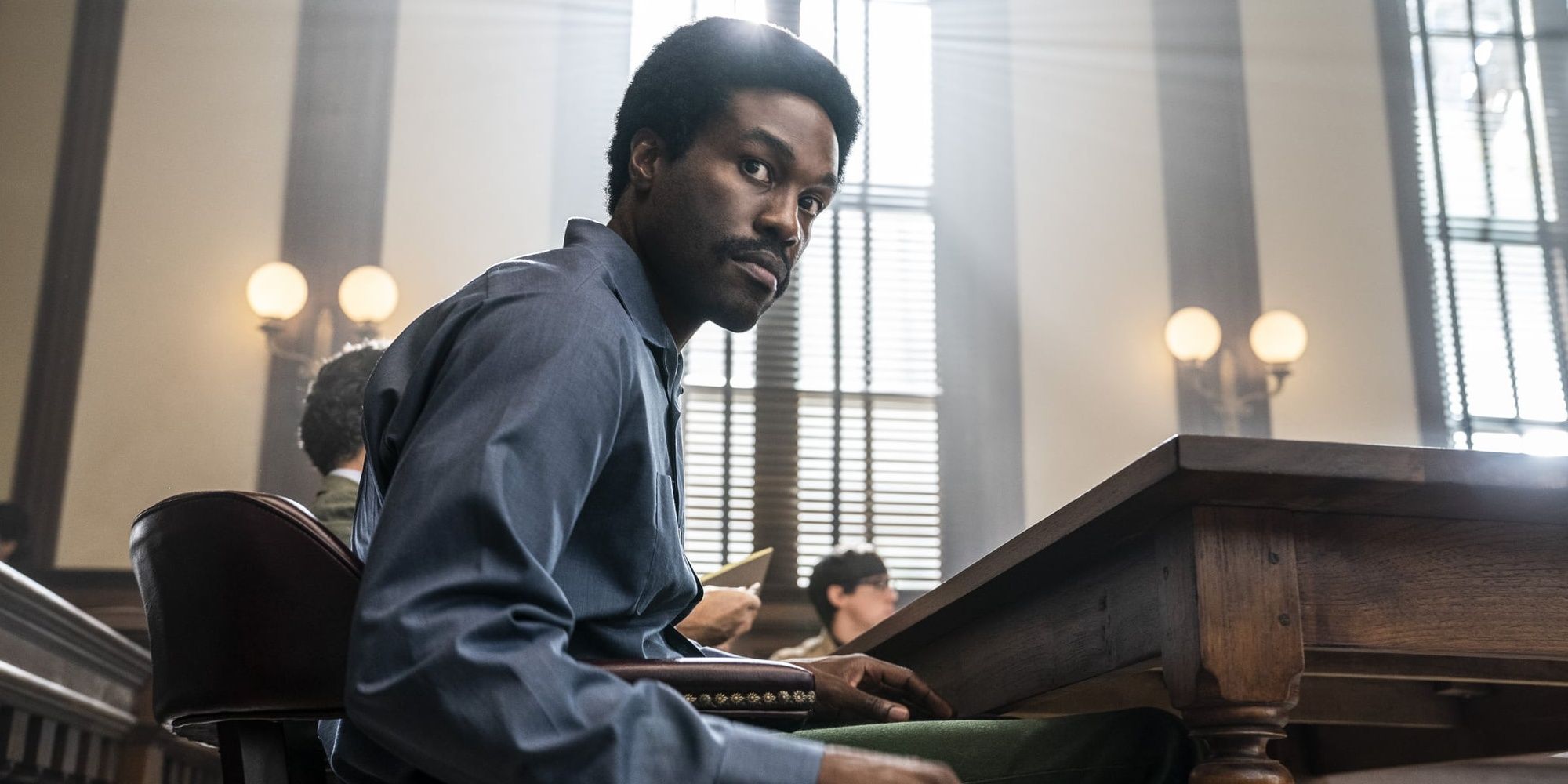
Aaron Sorkin's movie The Trial of the Chicago 7 introduces Bobby Seale, the co-founder of the Black Panther Party, but he vanishes from the movie entirely after being removed from the trial - and the rest of his complicated life is reduced to a brief mention at the end of the film. The Trial of the Chicago 7 details the prosecution of a group of anti-Vietnam War protesters, when a demonstration they organized at the 1968 Democratic National Convention turns into a riot. Bobby Seale, one of the original eight defendants charged with conspiracy and inciting a riot, was severed from the case on the grounds of a mistrial.
In the film, Bobby Seale (Yahya Abdul-Mateen II) refuses to back down when Judge Julius Hoffman (Frank Langella) orders him to stop asserting his constitutional right to a lawyer since Seale's attorney, Charles Garry, was unavailable due to a medical condition. Judge Hoffman has Seale removed from the courtroom and viciously beaten, and Seatle is bound and gagged when he returns. On the advice of prosecutor Richard Schultz (Joseph Gordon-Levitt), Seale's case is declared a mistrial and he vanishes from the rest of the film - with no details about the remainder of his life, save a postscript noting that he was not convicted of murder.
The real life Bobby Seale did have his charges dismissed on the basis of a mistrial, but after the events of The Trial of the Chicago 7 he still served four years in prison for 16 counts of contempt of court. While serving that prison sentence, Seale was again put on trial in 1970 as part of the New Haven Black Panther trials for allegedly ordering the murder of a Black Panther police informant. The leader of the murder plot, George Sams Jr., testified in court that Bobby Seale was the mastermind behind the plan - but ultimately the jury was unable to reach a verdict, and charges against Seale were dropped.

Bobby Seale was released from prison in 1972, but rumors were swirling that he had ordered a second murder while still behind bars. Seale's wife, Artie, had become pregnant while he was in prison - and the alleged father was fellow Black Panther, Fred Bennett. Bennett's remains were found in a suspected Black Panther hideout in 1971 while Seale was still in prison. Although police implicated Seale for orchestrating the murder, no charges were ever filed.
Despite these incidents, Seale ran for mayor of Oakland in 1973 - and although he lost, he received the second-most votes in a crowded field of nine candidates. Seale officially ended his affiliation with the Black Panther Party in 1974 after getting into a physical altercation with co-founder Huey Newton. Since then, Seale has worked as a community organizer and activist, and travels to colleges to speak about his experience as a Black Panther and advise students interested in social justice.
Seale was only tangentially related to the famous Chicago 7 trial depicted in Aaron Sorkin's film, although he was one of the original eight defendants. Seale did not participate in planning the protest, and only attended as a last minute replacement when activist Eldridge Cleaver dropped out. Bobby Seale's real-life activism and colorful life was largely left out of Sorkin's movie when he departed the trial, and The Trial of the Chicago 7 barely scratches the surface of his complex life.
from ScreenRant - Feed https://ift.tt/3kwmR48


0 Comments